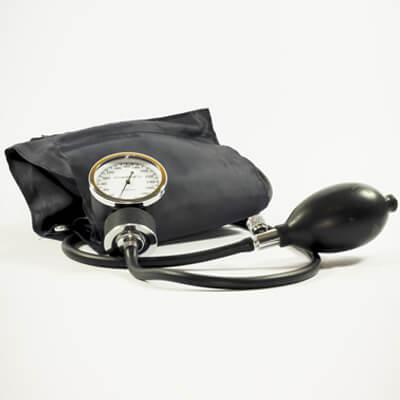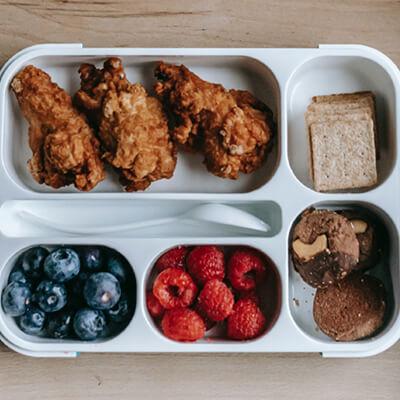Travelling with diabetes: Create memories, not stress
Guest article by Phyllisa Deroze Travelling is my favorite hobby. As a kid, I treasured my family's summer trips, driving to visit relatives. I fell in love with travelling because it gave me opportunities to see new places, try different foods and create memorable moments. As a college student, I spent hours on the internet planning trips to places that I couldn't afford to visit in real life. Today, I'm fortunate to travel several times a year and I have visited more than ten countries since being diagnosed with diabetes. It was scary at first. When I was newly...
Read MoreHypertension 101
Also known as “high blood pressure”, hypertension is one of the leading causes of strokes and heart disease, and the worst part is that it often shows no symptoms. People living with diabetes need to be especially watchful, as they are more likely to develop hypertension at some point and suffer from its adverse consequences. Blood pressure “Blood pressure” refers to the pressure that blood exerts on artery walls. It’s an essential part of the process that carries oxygen and nutrients throughout the body. ...
Read MoreDiabetes And Kidney Diseases
Diabetic nephropathy is a kidney disease that occurs in people with type 1 or type 2 diabetes. Up to 50% of people living with diabetes will eventually experience kidney damage, and they risk kidney failure without proper treatment. Fortunately, good diabetes management and effective prevention can delay or even prevent the loss of kidney function. What are kidneys for? The kidneys are two fist-sized organs located near the back, below the rib cage. Their job is to filter blood and eliminate waste through urine. They also regulate...
Read MoreDiabetes And Sexual Health
In a society where sex is omnipresent, it’s surprising to realize that it’s still a taboo topic. Although we openly discuss about many of the complications of diabetes, there’s very little talk about sexual problems, which occur more frequently and earlier in people living with diabetes. When desire flags Blood glucose levels are sometimes behind this, especially if they’ve been poorly managed for years. The inflammation, nerve damage and circulatory problems caused by improper blood glucose management can hinder libido. There’s...
Read MoreA Handy Guide To Successful Outings
Summer is back and there's great reasons to get out of the house. In a perfect world, diabetes would also take a summer holiday. Unfortunately, it doesn’t work that way, but you can easily adapt your activities to it with a bit of preparation. Going camping? From no-service grounds to RV trips, there can be a lot of variety to your outdoor adventures depending on your preferences. In any case, you need a way to keep your medication and meter cool during the day. If you have access to a fridge, great! Otherwise, a cooler will work. Speaking of medication, always bring a bit...
Read MoreTake a new look at your lunchbox
Whether it's your child's school lunchbox or something to eat at your desk, it's easy to get caught in a lunchtime rut. Here are a few diabetes-friendly lunchbox ideas to help you shake things up without a lot of extra preparation or planning. Start with dinner. If you're already cooking, make extra food. You can just reheat and eat, but you don't have to. Tonight's roast chicken makes a great quesadilla with a little cheese and sweet red pepper. A baked pasta dish becomes finger food when cut into...
Read MoreHandy Guide to Portion Control
Many people living with diabetes learn how to count carbohydrates in order to manage their blood sugar, and others are asked to watch their weight. But one of the easiest ways to miscount carbs or calories is by underestimating portion sizes, so here are a few handy tips. Measure now, feel good later Using a food scale and measuring cups can save you a lot of worry. This way, you'll know that you had a half-cup of brown rice with 22 carbs and 100 calories1, instead of "about" that much and "20-ish carbs...
Read MoreLife With Diabetes: Your Child And You
A diagnosis of juvenile diabetes is never easy to accept. The parents are worried, sometimes destabilized, and the child finds themselves having to take on large responsibilities for their age. Diabetes is easy to manage, but it requires a lot of discipline; insulin injections, blood glucose monitoring and diet plans are just a few important things to think about. Despite all this, your child needs to be able to experience a normal childhood without feeling limited or left out. So how can you make cohabitation with this condition easier? Here are some suggestions. Talk about diabetes with your...
Read MoreThe Complications Of Diabetes
Diabetes is a challenge in itself, and it can lead to additional, sometimes very serious, health problems. But the good news is that you can delay or even prevent the appearance of many complications. Hypertension People living with diabetes are more prone to hypertension (or “high blood pressure”), which in turn increases their risk of developing other problems, such as heart disease and stroke. Lifestyle habits play a major role in...
Read MorePages
Hypertension 101
Also known as “high blood pressure”, hypertension is one of the leading causes of strokes and heart disease, and the worst part is that it often shows no symptoms. People living with diabetes need to be especially watchful, as they are more likely to develop hypertension at some point and suffer from its adverse consequences. Blood pressure “Blood pressure” refers to the pressure that blood exerts on artery walls. It’s an essential part of the process that carries oxygen and nutrients throughout the body. ...
Read MoreDiabetes And Kidney Diseases
Diabetic nephropathy is a kidney disease that occurs in people with type 1 or type 2 diabetes. Up to 50% of people living with diabetes will eventually experience kidney damage, and they risk kidney failure without proper treatment. Fortunately, good diabetes management and effective prevention can delay or even prevent the loss of kidney function. What are kidneys for? The kidneys are two fist-sized organs located near the back, below the rib cage. Their job is to filter blood and eliminate waste through urine. They also regulate...
Read MoreDiabetes And Sexual Health
In a society where sex is omnipresent, it’s surprising to realize that it’s still a taboo topic. Although we openly discuss about many of the complications of diabetes, there’s very little talk about sexual problems, which occur more frequently and earlier in people living with diabetes. When desire flags Blood glucose levels are sometimes behind this, especially if they’ve been poorly managed for years. The inflammation, nerve damage and circulatory problems caused by improper blood glucose management can hinder libido. There’s...
Read MoreA Handy Guide To Successful Outings
Summer is back and there's great reasons to get out of the house. In a perfect world, diabetes would also take a summer holiday. Unfortunately, it doesn’t work that way, but you can easily adapt your activities to it with a bit of preparation. Going camping? From no-service grounds to RV trips, there can be a lot of variety to your outdoor adventures depending on your preferences. In any case, you need a way to keep your medication and meter cool during the day. If you have access to a fridge, great! Otherwise, a cooler will work. Speaking of medication, always bring a bit...
Read MoreTake a new look at your lunchbox
Whether it's your child's school lunchbox or something to eat at your desk, it's easy to get caught in a lunchtime rut. Here are a few diabetes-friendly lunchbox ideas to help you shake things up without a lot of extra preparation or planning. Start with dinner. If you're already cooking, make extra food. You can just reheat and eat, but you don't have to. Tonight's roast chicken makes a great quesadilla with a little cheese and sweet red pepper. A baked pasta dish becomes finger food when cut into...
Read MoreHandy Guide to Portion Control
Many people living with diabetes learn how to count carbohydrates in order to manage their blood sugar, and others are asked to watch their weight. But one of the easiest ways to miscount carbs or calories is by underestimating portion sizes, so here are a few handy tips. Measure now, feel good later Using a food scale and measuring cups can save you a lot of worry. This way, you'll know that you had a half-cup of brown rice with 22 carbs and 100 calories1, instead of "about" that much and "20-ish carbs...
Read MoreLife With Diabetes: Your Child And You
A diagnosis of juvenile diabetes is never easy to accept. The parents are worried, sometimes destabilized, and the child finds themselves having to take on large responsibilities for their age. Diabetes is easy to manage, but it requires a lot of discipline; insulin injections, blood glucose monitoring and diet plans are just a few important things to think about. Despite all this, your child needs to be able to experience a normal childhood without feeling limited or left out. So how can you make cohabitation with this condition easier? Here are some suggestions. Talk about diabetes with your...
Read MoreThe Complications Of Diabetes
Diabetes is a challenge in itself, and it can lead to additional, sometimes very serious, health problems. But the good news is that you can delay or even prevent the appearance of many complications. Hypertension People living with diabetes are more prone to hypertension (or “high blood pressure”), which in turn increases their risk of developing other problems, such as heart disease and stroke. Lifestyle habits play a major role in...
Read More








